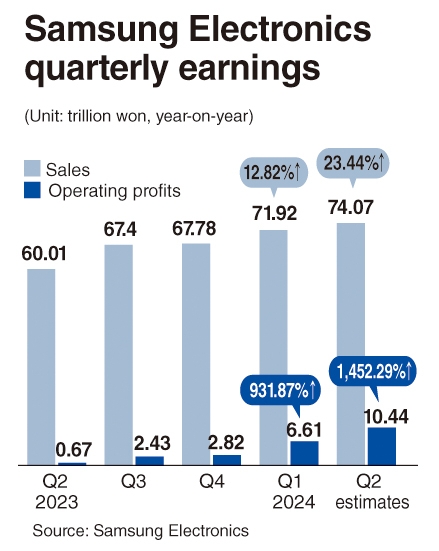
Samsung Electronics announced in its second-quarter earnings call that it is focused on sustaining its earnings growth by scaling up sales of the high-performance high bandwidth memory (HBM) chip, particularly the fifth-generation HBM3E, to meet the increasing demand in the fast-growing artificial intelligence market. The company plans to commence mass production of its 8-layer HBM3E chip in the third quarter and anticipates the supply of its 12-layer HBM3E chip to commence in the second half of the year to meet the requests from multiple customers. This comes as Samsung's fourth-generation HBM3 chip has already passed quality tests of US AI chip giant Nvidia, and market analysts anticipate a similar outcome for its latest HBM3E chip. With its chip division's performance rebounding due to the semiconductor upturn, Samsung foresees the HBM3E becoming a significant contributor to its chip business in the latter half of the year. Additionally, the company plans to unveil its sixth-generation HBM4 in the second half and is actively working on customizing HBM products to meet various customer demands. Furthermore, Samsung mentioned that despite the ongoing strike by its labor union, it expects limited impact on its overall production and management. In its second-quarter earnings report, Samsung disclosed a significant jump in earnings, driven mainly by the robust performance of its semiconductor business. The company reported an operating profit of 10.44 trillion won, a substantial increase from the previous year, and invested heavily in research and development as well as facility investment spending, particularly in the chip sector. Samsung's chip business achieved a surplus for the first time in five quarters, and the foundry business also saw improved earnings due to increased demand across applications. However, the mobile business faced challenges with waning demand for smartphones, while the TV business expanded and the home appliance segment saw a gradual recovery on the back of rising demand for new products. Following the positive quarterly report, Samsung's shares gained 3.58 percent in trading.
